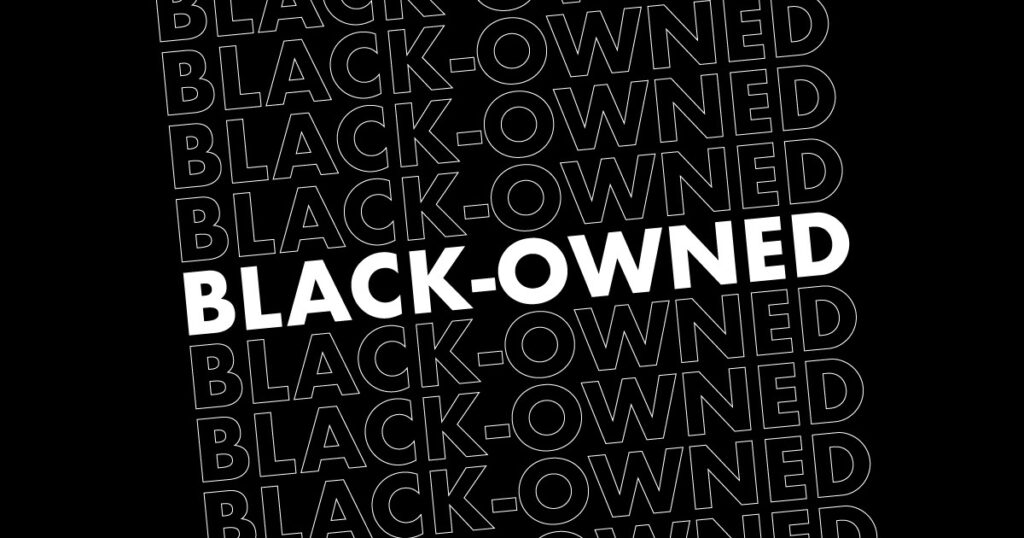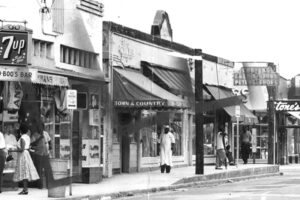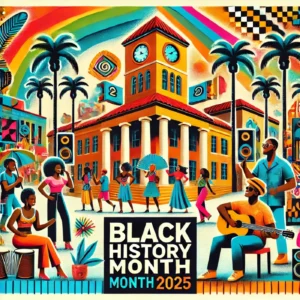Over the past few years, diversity, equity, and inclusion (DEI) initiatives have come under attack in corporate America. Many businesses that once touted their commitment to racial equity in the wake of George Floyd’s murder have quietly rolled back their DEI strategies, citing shifting political landscapes, economic pressures, and, in some cases, backlash from conservative stakeholders. This regression has been further fueled by policies and ideologies that gained traction during the Trump administration, which sought to dismantle DEI programs under the guise of eliminating “woke” culture.
For the Black community, these rollbacks are not just disappointing; they are dangerous. When corporations turn away from DEI, they signal that they no longer prioritize equitable hiring practices, supplier diversity, culturally competent marketing, or anti-racist workplace policies. The result? A corporate landscape that once again marginalizes Black employees, entrepreneurs, and consumers.
Now, more than ever, it is crucial for the Black community to wield its economic power strategically. While boycotting businesses that abandon DEI efforts is one step, the most powerful and sustainable solution is to prioritize spending with Black-owned businesses. Investing in Black entrepreneurship strengthens the economic foundation of the Black community, fosters job creation, and builds generational wealth. Here’s why shopping Black is the most impactful way to drive meaningful change.
The Economic Power of the Black Community
Black Americans have an estimated $1.6 trillion in buying power, making them one of the most influential consumer groups in the U.S. However, much of this money is spent outside of Black communities, limiting opportunities for economic growth and self-sufficiency.
Studies show that a dollar circulates for about 28 days in the Asian community, 19 days in the Jewish community, and only six hours in the Black community. This stark contrast highlights the need for reinvesting in Black businesses to build sustainable economic power. Historically, when the Black community has pooled its financial resources and supported its own businesses, it has led to prosperity and increased self-determination. One of the most famous examples is Black Wall Street in Tulsa, Oklahoma, which thrived in the early 20th century before being destroyed by racial violence.
By intentionally shopping with Black-owned businesses, the Black community can reclaim its economic power and create opportunities for long-term wealth generation.
Why Shopping Black Matters
1. Building Black Wealth and Closing the Racial Wealth Gap
Black-owned businesses create jobs within the Black community, offering career opportunities that might not be available elsewhere. Supporting these businesses leads to increased wages, home ownership, and investment in education—key factors in closing the racial wealth gap.
2. Strengthening Black Communities
When dollars stay within the Black community, they fund local schools, community programs, and infrastructure improvements. The success of Black-owned businesses translates into more resources for neighborhoods that have historically been underfunded and neglected.
3. Creating More Black Entrepreneurs
A thriving ecosystem of Black-owned businesses inspires and enables more Black entrepreneurs to start their own ventures. This increases innovation, competition, and representation in industries where Black people have been historically underrepresented.
4. Promoting Economic Independence
Dependence on corporations that fail to prioritize Black employees and consumers makes the community vulnerable to discrimination and economic instability. A strong network of Black-owned businesses reduces this dependence and fosters self-sufficiency.
5. Countering the Rollback of DEI Efforts
While boycotting companies that abandon DEI initiatives is important, it is equally—if not more—essential to support businesses that actively uplift Black communities. Every dollar spent with a Black-owned business is a direct investment in racial equity and economic justice.
How to Support Black-Owned Businesses
1. Be Intentional About Where You Spend
Seek out Black-owned businesses for everyday needs, from groceries and clothing to beauty products and professional services. Websites like WeBuyBlack, Official Black Wall Street, and the U.S. Black Chambers Business Directory make it easy to find and support Black-owned brands.
2. Use Social Media to Amplify Black Brands
Social media is a powerful tool for spreading awareness. Share Black-owned businesses with your networks, leave positive reviews, and engage with their content to help increase their visibility.
3. Invest in Black-Owned Financial Institutions
Banking with Black-owned financial institutions helps circulate wealth within the community. Consider opening an account with a Black-owned bank or credit union to ensure that your money is used to support Black economic initiatives.
4. Support Black Farmers and Food Businesses
Food security is a critical aspect of economic empowerment. Buying from Black farmers, restaurants, and food producers helps sustain Black-owned agricultural and culinary enterprises.
5. Encourage Corporations to Invest in Black-Owned Suppliers
Hold larger companies accountable for their supply chain diversity. Encourage businesses you frequent to partner with Black-owned vendors and suppliers to ensure that Black entrepreneurs benefit from major corporate spending.
The Case for Boycotting Anti-DEI Businesses
While the focus should be on supporting Black businesses, boycotting companies that retreat from DEI initiatives remains an important tool for demanding accountability. Here’s why a targeted economic boycott is necessary:
- Economic Pressure Leads to Policy Change: A measurable decline in revenue forces executives to reassess decisions regarding DEI rollbacks.
- Protecting Workplace Diversity: Boycotts can push companies to retain or reinstate initiatives that promote Black hiring, mentorship, and leadership development.
- Challenging Performative Allyship: Many companies issued statements of solidarity in 2020 but have since failed to follow through. Boycotting exposes these contradictions and holds businesses accountable.
However, boycotts alone are not enough. Without a concerted effort to redirect spending toward Black-owned businesses, withholding money from corporations does not necessarily benefit the Black community. The most effective strategy is a two-pronged approach: boycott businesses that undermine racial equity while simultaneously investing in Black-owned enterprises.
The rollback of DEI initiatives is a direct attack on the progress the Black community has fought for over decades. But we have the power to fight back—not just by refusing to spend money with corporations that do not serve us, but by actively reinvesting in our own businesses.
History has shown that when the Black community unites financially, the impact is profound. By shopping with Black-owned businesses, we are not just making a purchase; we are making a statement. We are demanding economic justice, fostering self-sufficiency, and ensuring that Black wealth is built and sustained for future generations.
The Black community’s financial strength is its power. It’s time to use it wisely, prioritize Black businesses, and build an economic foundation that ensures lasting equity for generations to come.
by Blackdoctor





















